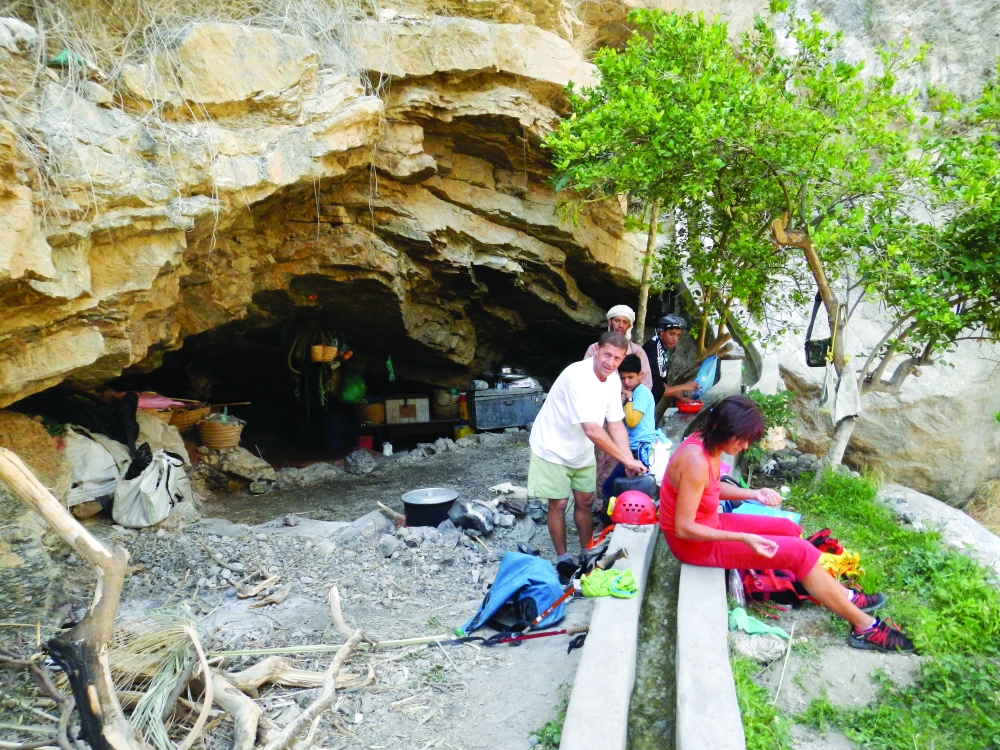

Within Oman's stunning Al Hajar mountain range, Jabal Akhdar, also known as the ‘Green Mountain,’ has long been a hidden gem. Until the 1990s, this spectacular destination was restricted to locals and foreigners with special permits.
However, Jabal Akhdar's transformation in the past few decades has been remarkable. Located approximately 150 kilometres from Muscat, this once remote mountainous area has undergone a major urbanisation overhaul. The development of the Sayq plateau at 2,000 meters above sea level has given rise to a modern village known as Sayh Qatanah. This newly established community boasts a modern infrastructure, complete with asphalt roads, electricity, water supply, internet connections, schools, hotels, and clinics, transforming the lifestyle of its residents.
Many former villagers from the wadi, situated at the mountain's base, abandoned their terraced fields, once adorned with pomegranate, date, peach, and lime trees, due to the challenges of accessing these hamlets, often only reachable by mule or along ancient donkey trails that require hours to traverse.
Despite this shift, Musabbah al Awemeri, a 32-year-old from the spectacular village of Masirat al Shreeqiyeen perched on the mountain's rocky edge, remains committed to preserving his family's legacy. Together with his younger brother Nasser, they dedicate their weekends to tending to the trees and repairing the terraces, ensuring their ancestors' gardens flourish. Their dedication extends to cultivating organic crops like garlic, sweet potatoes, pomegranates, and banana trees.
"The pomegranates of Jabal Akhdar are the best on Earth! Our neighbours from the Gulf countries are crazy about Omani pomegranates, and it provides a good income for us during the summer," Nasser al Awemeri proudly asserts.
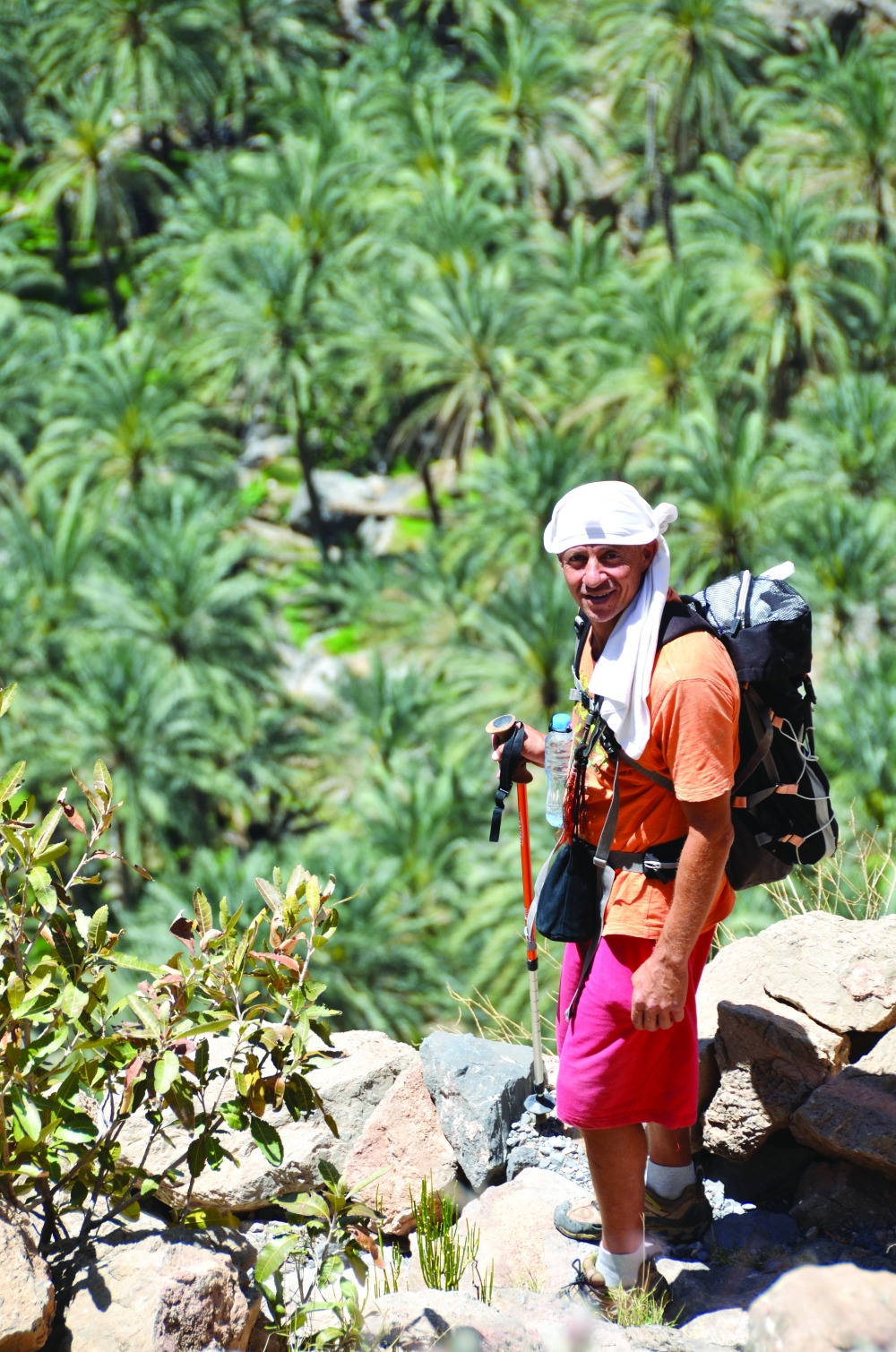
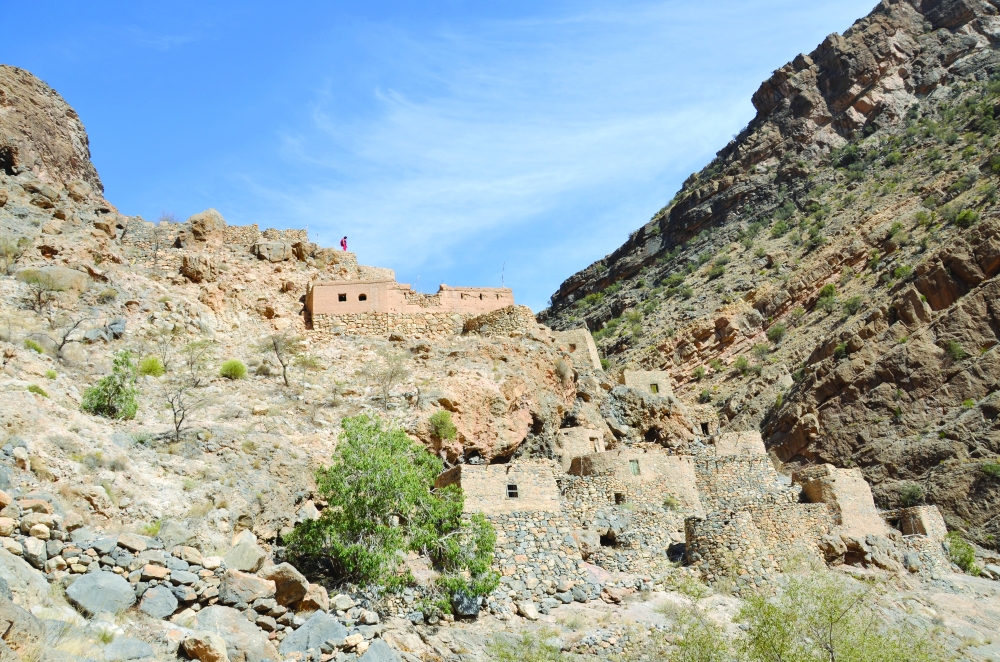
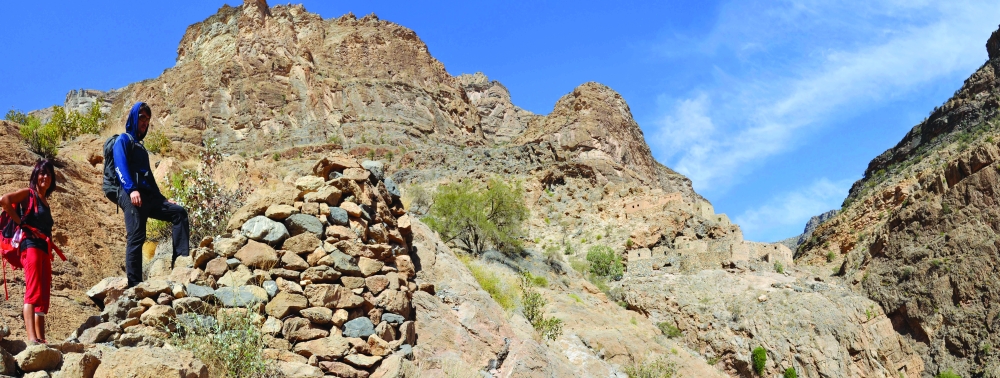
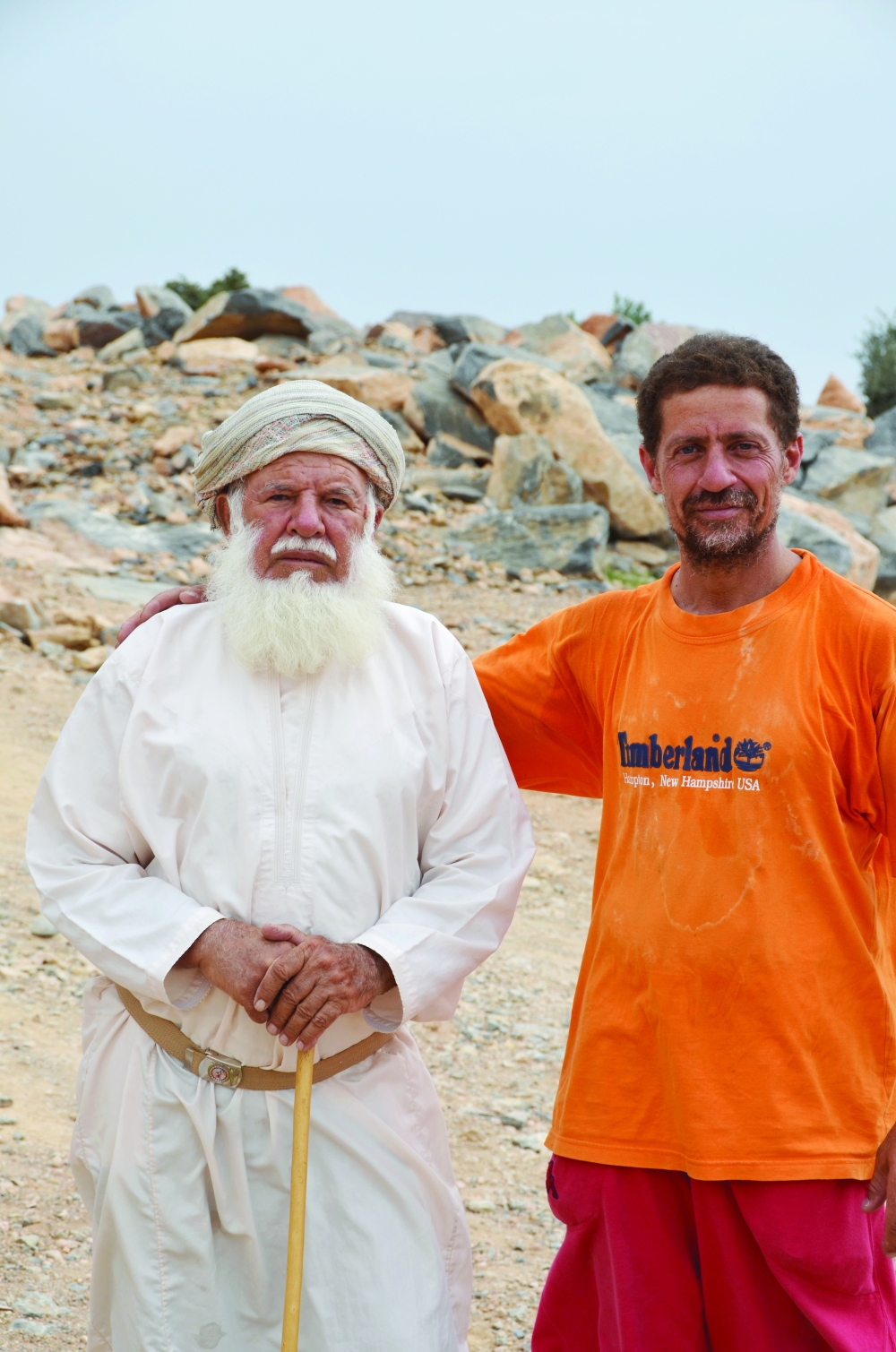
In recent years, Jabal Akhdar has welcomed an increasing number of tourists, particularly from the Gulf countries, seeking respite from the scorching summer heat. Temperatures on the plateau rarely exceed 30 degrees Celsius during the summer months. Musabbah and Nasser al Awemeri have found a thriving market for their produce among the visitors to Sayh Qatanah, now home to thousands of residents who once inhabited the wadi villages.
This gradual exodus from the wadi occurred over more than 25 years as urban development flourished. Previously, the inhabitants of Jabal Akhdar split their time between the wadi and the mountain's summits. They sought refuge in the wadi's warmer villages during winter, while summers lured them to the cooler high-altitude spots. Many have permanently settled on the plateau, like Yaacoob al Jamoudi, who works for the Sultan's armed forces, enjoying job security and modern amenities thanks to the government's investments.
Jabal Akhdar earned its designation as a protected natural reserve in 2011, home to some of the world's oldest trees, including thousand-year-old juniper and olive trees. Its Mediterranean climate supports the flourishing of grapes, peaches, and pomegranates, otherwise rare in the country. Additionally, the region is renowned for its roses, used to distil fragrant rosewater in late April and May.
A stroll through the terraced fields along the narrow walls of the ancient water canal, known as the falaj, offers visitors a unique experience. It provides an informative glimpse into the people's daily lives in this remote region.
However, amid the progress, there are concerns. An elderly man in Aaqabat al Biyout laments the changing work ethic of the younger generation. He passionately imparts traditional skills to his grandchildren, emphasizing the importance of farming and craftsmanship. He worries that the current generation's perceived laziness may jeopardise the region's identity and the wealth derived from its wadi.
Jabal Akhdar has profoundly transformed from a restricted sanctuary to a burgeoning tourist destination. Still, its essence remains deeply rooted in its natural beauty and the determination of its inhabitants to preserve their heritage amidst modernisation.
Oman Observer is now on the WhatsApp channel. Click here


